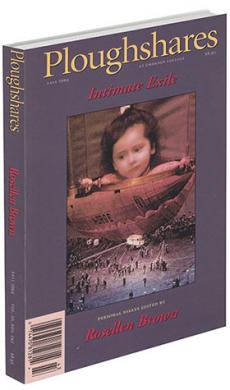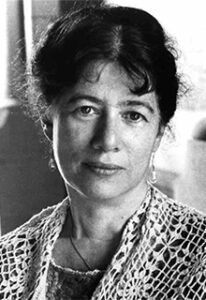rev. of Bone by Bone by Gary Krist
Bone by Bone
Stories by Gary Krist. Harcourt Brace, $19.95 cloth. Reviewed by Jessica Treadway.
The best stories are often the ones that surprise us, either because we aren’t expecting what happens, or because they take us farther than the destination we had in mind.
In his second collection,
Bone By Bone, Gary Krist gives us thirteen compelling variations on the “What if?” theme, pushing plot and character beyond conventional comfort zones and into the realm of discovery which comes only through risk.
What if a man decides to leave the woman he lives with, because her multiple sclerosis is getting worse? She stays in the bedroom, in her wheelchair, as their friends help the narrator load his belongings into a moving van. “This is what it feels like to be despicable,” he tells himself. “But even now, as I’m leaving, I can’t quite believe it. I just wasn’t strong enough for this. . . . It’s as simple as that.” The narrator’s willingness to see and acknowledge his limitations, and his realization that the people who are helping him move are likely performing “a last duty” of friendship, make “Baggage” a story not about what
should be, in a perfect world, but about what
is, in ours.
In “Bludgeon,” a story about spiritual and physical power, two men on the lam from an alcohol rehab run over a deer in the road, maiming but not killing it. Trying to find something with which to put the animal out of its misery, they stumble into the house of a man in a wheelchair, who offers them the use of a pistol he keeps in a coffee can. What happens then reminds us, with a shiver, of how compassion sometimes lies down with cowardice, and how a good intention can still come to a bad end.
Most of Krist’s characters are not in wheelchairs. Like most of ours, their pain is invisible, and it disables them to different degrees. They seek safety and solace in the usual places — drugs and alcohol, religion, insanity, geographical moves — but with Krist as creator, their searches feel fresh. “Hungry” begins this way: “When Mr. Medwik at the Hart Memorial Funeral Home refused to upgrade my title from Assistant to Associate Embalmer, I knew that it was time for me to go to Alaska.” The narrator and his mother, who also works at Hart Memorial as “a part-time greeter/mourner,” decide to change their luck and lift their spirits by relocating from upstate New York. Problems arise when, one by one, their friends ask to be included in the cross-country move to the place chosen from the atlas because of its name: Hungry, Alaska. “As in Hungry for Something Better out of Life,” the narrator notes.
In a trilogy of stories about the Eriksons, narrated by a son, Krist deftly depicts the way families are defined and sustained by love, betrayal, jealousy, laughter, loss, and, most of all, the yearning that is seldom fulfilled, at least not where we look for it to be. “She and I understood each other that day,” Cliff tells us, describing a clandestine visit he and his mother made to a Catholic church when he was a child. “We shared a like need for the waxy scents, the blood-rich colors, and the exotic, comforting darkness held within that church’s walls. . . . But now . . . I saw a different woman, one who had interests of her own, separate from mine, one whose secrets were no longer my secrets.”
Krist, whose story collection
The Garden State received the Sue Kaufman Prize for First Fiction, writes with humor, insight, and grace about the human condition, in all its triumph and folly.
Bone by Bone deserves to be not only read but savored, page by page.
Jessica Treadway’s collection of short stories, Absent Without Leave,
received the John C. Zacharis First Book Award from Ploughshares
and Emerson College in 1993.
She is working on a novel.

